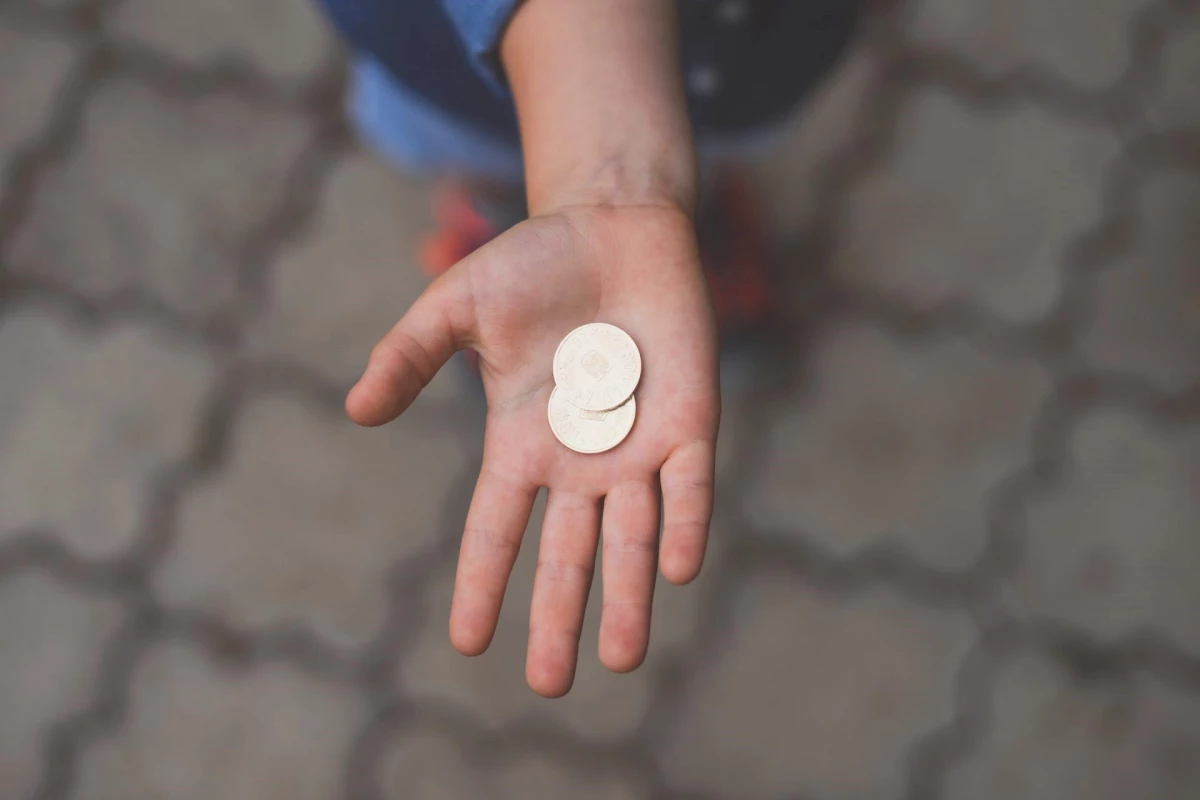Even if you grow children in the concept of reasonable consumption, do not pay off the gifts, learn to appreciate intangible joys, sooner or later they will still fall into society - and there others have more expensive and cool toys, things, gadgets. The psychologist Marina Bykova reflects how to explain to the child that the family has no money for all this. And do not upset it.

Starting from 2-3 years, children compare themselves with others. So they are trying to know themselves: I am above, my T-shirt is the most brilliant, I have more toys. It sounds like a child trying to win more space in the world: usually children always want to be confident that they are better than others, writes rebenok.by.
In kindergarten, the business can reach this quarrel: "Whose mom is better?" Or "Whose dad is stronger?" Only with time, the child is aware of: not everything that he has, the best, there are positions by which he is inferior to others. Of course, all children develop unevenly, not everyone has the same opportunities - sooner or later every child notices that it cannot do or have some things that are available to others.
Not only physical differences are important to school closer to school, but also material. Here the child is waiting for a new discovery: if you cut and climb, he could learn himself, then finances are managed only adults. Cognitive distortion may occur: if parents do not buy what I want, they just don't want to buy it.
To blame the child for this is impossible: it is obvious that at this age he cannot realize the price of things, since he has never had the experience of interaction with money.
If parents want to explain to the child what and how it really works, you need to be prepared for the conversation may not be very pleasant. Be prepared to answer any questions honestly, considering that the child does not want to offend you, but just a little knows about the device of the world.
What do you need to explain the younger schoolchild?
- How is the process of shopping and why buying is not the most important thing in life. In any case, even if the child still hurts his insult that he has no last iPhone, over time he will understand you, and you will not excel it.
- Where does the money come from and why you can not print them more? In some families, it is decided to gradually teach the child to plan their savings: give money for a holiday or "pay" home help. This is not the only way, you can simply tell the real story of the emergence of money. As ancient people exchange goods and services, as they realized that we need a total value, as this value was mined. The psyche of a separate man as a whole preserves the logic of the development of the logic of all mankind. And in order to understand the stock market in the future, you can start with stories about beautiful shells and gold.
How to answer uncomfortable children's questions about money
Before these questions arise, useful with the child to think about what your family money is spent: products, clothing, transport. Do not forget to turn on there pleasant spending so that it is gradually a person understood that each candy is equal to a few minutes of work. If the child asks:
- Why can't you earn more?Do not perceive this question as reproach, even if this topic yourself is worried. You can simply answer: each work is important and complicated, even if paid differently.
Such conversations should not lead to the conclusion "You do not have an iPhone, because we did not work." A more appropriate result: "We work and spend money now for something more important, without which we cannot do." Both the child and parents are useful to be confident in the future of their family.
- I have no toys from the collection (gadget, fashionable clothes), no one will be friends with me!Marquetologists of children's goods eat: the more heroes and details in the cartoon, the more you can sell. The problem is that children are pretty quickly throwing toys: some similar dogs and cars can be unnecessary in half a year. And then goes away for several years - and matured children demand expensive clothes or new gadgets every season. Modern culture only heats up interest in consumption, everyone wants sneakers like a beloved blogger - no matter how much they cost. Societary literally shout: "Buy, because you want it right now." Even adults are difficult to resist such pressure.
Almost all the school age (from the younger to the end of teenage) children are important to belong to the group, to have the same thing that everyone has. It is necessary to have power to redirect the focus of the child to internal qualities. To begin with, think about how you do it yourself. Talk to the child: who is his friends, for which he appreciates them, why it is interesting with them. Why do I need the last iPhone: to play together or just put on the desk?
From an early age, learn the child to see interesting in any day, even if you spent time not at sea or in a steep camp, but at my grandmother in the village. Teach a child to rely on ourselves, not depend on things, feel cool without some kind of feeding from the outside. For this, it is not so important to convince him that expensive purchases are not needed - it is more important that with them, and without them there is a lot of fun and interesting in life.
You can make sure that such an expensive and important child wants to buy in the future, which emotions will bring it. The child gradually realizes that things are just a means. And that friends will not cease to be friends, regardless of whether they have a fashionable gadget.

How to explain to the child that there is no money
In most cases, parents are experiencing themselves for their financial condition. Regardless of the level of wages, any adult man limits himself in spending, to a greater or lesser extent. Sometimes the parents unconsciously shift the resentment for the child: money on babies is spent very much, and from their desires you have to give up. Despite the fact that the child in principle cannot provide himself, it requires large, irrational spending. So there are all familiar phrases that wound both sides: "We are not a millionaire you, there is no money," "I spend a lot of money on you. I have no normal winter shoes, but give you toys, "" Earn - you will buy yourself anything. " Familiar?
Such words look like a competition with a child: You are in my power, I decide what will happen, your opinion is not important. The child and so feels dependent on parents, and here it turns out that he once again loses the right to vote.
A child who has grown in the atmosphere "We save all, you must be grateful for it," will not have a healthy attitude towards money. The Balance "Important - pleasant" can be strongly selected in one of the parties.
What to do? You can always speak honestly with the child. Explain that people get different salary in different works - and this is normal. To talk, how the budget is drawn up: mandatory and optional spending, costs like sudden repairs or illness. If you can't afford your vacation at sea, it is also normal, and there is no guilty of it.
You can talk about the younger student about this simply as facts, without a resentment for an unfair destiny (lost youth, evil chief or child's birth). With a teenager, you can consult, for what he would have spent extra money, which is now important for the family.

"I know that you want a new phone, but now we cannot afford it", "You know that last month we had a car broke, and we can't do without her repair", "You know that I I work a lot and would like to give you everything you want, but my salary allows you to make a little less, "I would like to rest all together to relax, but if you don't work yet, let's think about how to have time to spend time here." It is important not to deny that there are inaccessible things for your family, but to shift the emphasis - we do everything for you that we can.
Our attitude towards money is partially formed in childhood. This is a very important point that will affect financial behavior in the future. Remember the parents and think about how you spend or save, as you plan to buy and how often you say: "No money."
Of course, physical, moral, material and other conditions for all people are very different. In addition, they change over time - and they can change very rapidly. However, self-confidence, their forces and future opportunities - the fact that parents can raise in their child, regardless of the financial situation of the family.
